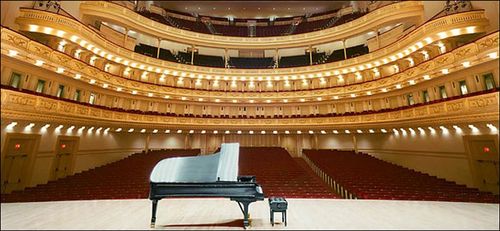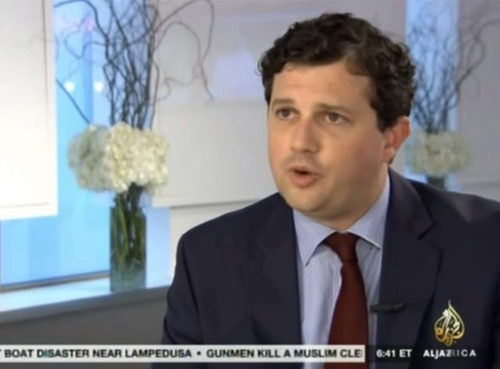THE WALL STREET JOURNAL
October 3, 2013
Don't Let the Unions Call the Tune
by James Panero
IATSE/Local One's action has temporarily shuttered New York's famed concert hall
Within hours of when its season-opening concert by The Philadelphia Orchestra was set to begin, Carnegie Hall was forced to cancel that performance Wednesday after its stagehands, represented by IATSE/Local One, went on strike. The unprecedented walkout follows a week of terrible news for classical music in the U.S., in which the music director of the Minnesota Orchestra resigned over its musicians' contract disputes, and New York City Opera announced it was filing for bankruptcy, ending its 70-year run as "the People's Opera." The Philadelphia Orchestra, locked out of Carnegie and still recovering from its own bankruptcy, announced that it would instead present a free concert at its home in downtown Philadelphia.
The dispute at Carnegie Hall follows a year of negotiations that have centered on the expansion of Local One's control from the Carnegie stage into the hall's new education wing, set to open in fall 2014. "Carnegie Hall Corporation has spent or will spend $230 million on its ongoing studio tower renovation, but they have chosen not to appropriately employ our members as we are similarly employed throughout the rest of Carnegie Hall," writes James J. Claffey Jr., president of Local One, in a statement to the press issued on the union's website. "Carnegie Hall Corporation continued for 13 months to fail to acknowledge the traditional and historic work that we perform and after no significant progress, we found it absolutely necessary to take action to protect the members that we represent."
In response, Carnegie says that the union's demands would compromise the hall's mission by diverting significant funds away from education into stagehand fees. "In opting to strike, the stagehands have rejected a proposed new agreement that includes annual wage and benefit increases and continued jurisdiction throughout Carnegie Hall's concert venues." Calling their demand "unprecedented," Clive Gillinson, the executive and artistic director of Carnegie Hall, adds that "the stagehands have one of the most lucrative contracts in the industry," and the planned activities for the education spaces "have nothing to do with the performance-related work they do in the concert halls."
Mr. Gillinson's reply only scratches the surface of frustration shared by arts organizations around the country in the grips of union control. For over a century, Local One has been collective-bargaining the life out of New York's performing arts. Just how much does this union of carpenters, electricians and prop masters bleed from city arts organizations? Carnegie Hall's tax returns for its 2010-11 season, its most recent publicly available records, suggest an answer. Non-profits are required to itemize the top compensation for its officers, directors, trustees, independent contractors and employees. At Carnegie, five of the top 10 earners are stagehands.
Dennis O'Connell, Carnegie's properties manager, has pulled down headline-making salaries from the concert hall for years. Between 2001 and 2003, for instance, his annual salary ranged between $309,000 and $344,000. For the 2010-2011 fiscal year, his earnings topped $436,000 in reportable and other compensation, making him Carnegie's highest-paid employee after Mr. Gillinson. Four other stagehands—carpenters James Csollany and Kenneth Beltrone ,and electricians John Goodson and John Cardinale—garnered earnings exceeding $300,000 apiece.
These numbers only hint at a deeper truth well known in the New York arts community—one that affects Lincoln Center, all of Broadway, and numerous other venues. Because of the stranglehold of Local One-negotiated contracts, New York theater owners must all pay a sizable tribute each day just to keep the lights on. The pay rates that Local One secures for its stagehands far exceed the deals struck by other IATSE chapters nationwide, and many employees can pad their base pay with multiple surcharge triggers—overtime, missed meals, and tasks that mandate excessive staffing.
The money comes out of arts organizations' bottom lines, driving up production costs and ticket prices and inhibiting the evolution of New York theater. Union control has been particularly punitive toward organizations trying to expand their reach through advances in technology like webcasting and movie-theater simulcasts. The Metropolitan Opera had to spend years at the bargaining table to launch its Live in HD program. Now Carnegie is being pressed as it tries to open its education wing.
Local One has established its prerogatives through a closed network, where a select few members benefit and the rank and file are scared to protest for fear of retaliation. Chapter President Claffey is the son of a Local One member and has counted five brothers in the union. The leadership is predominantly white and male, and of the union's 3,000 members, few are women. Thanks to a tiered salary structure and a union-controlled promotion system, not all of the members benefit from the big payouts. One anonymous blogger who has identified himself as a rank-and-file member has railed against what he calls the union's system of preferment: "2500 victims plus the 350 to 500 plus relatives and loop boys."
In better economic times, Local One's impositions were bad enough. Now, as arts organizations are struggling, the union's compensation packages should receive the same scrutiny as the pay rates of top management. The high salaries commanded by maestros and executive directors, which can exceed $1 million, have been determined in an open marketplace. Could another prop master do Mr. O'Connell's job just as well, and for less pay?
This is a fight Carnegie Hall needs to win. If the union is allowed to extend its reach to areas outside its purview, then sooner or later every other performing arts institution nationwide will face the same challenge. And they, and their audiences, will pay dearly.
UPDATE: Look for my appearance on Al Jazerra America talking about the strike and Carnegie's settlement with Local One.

